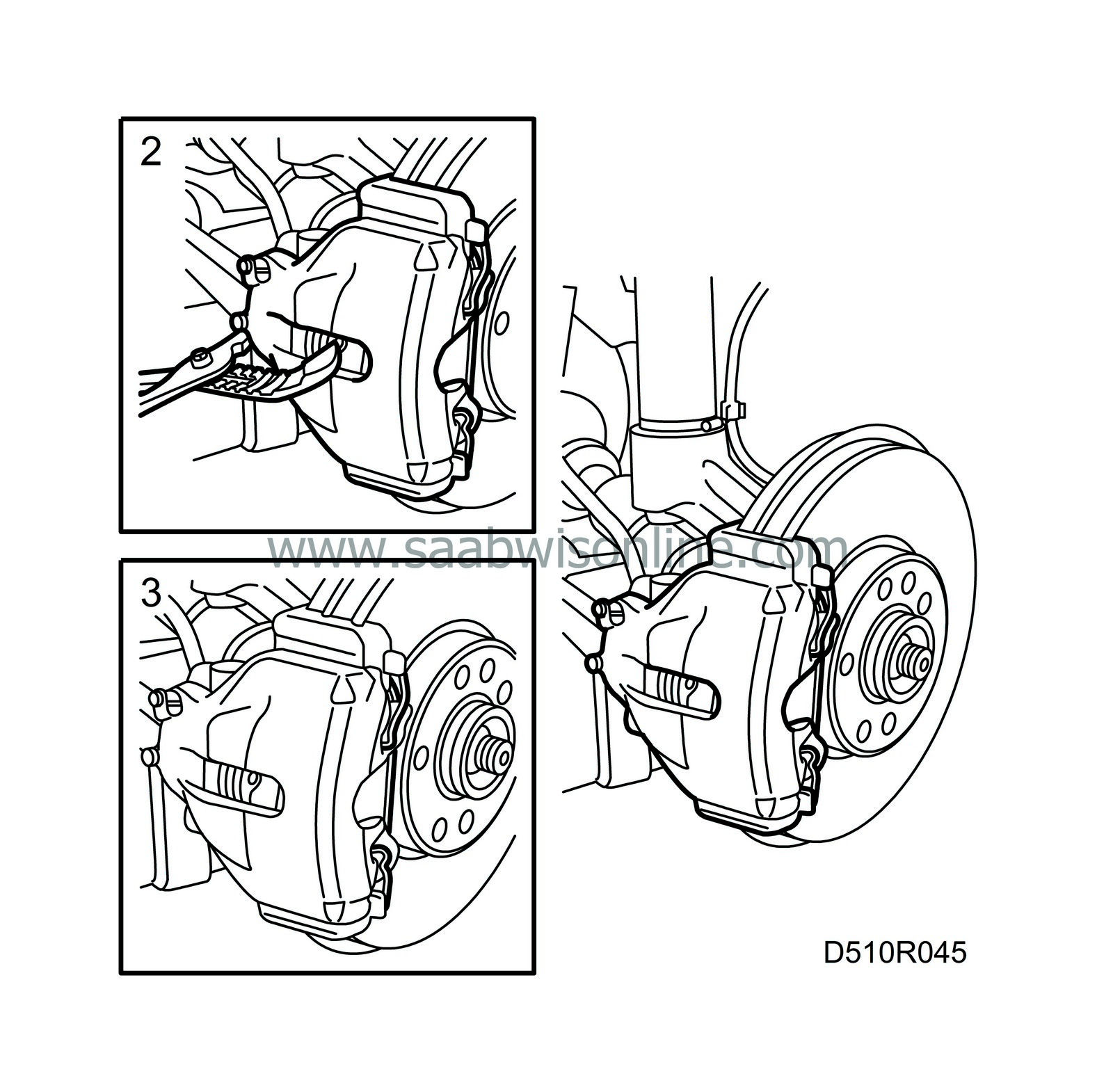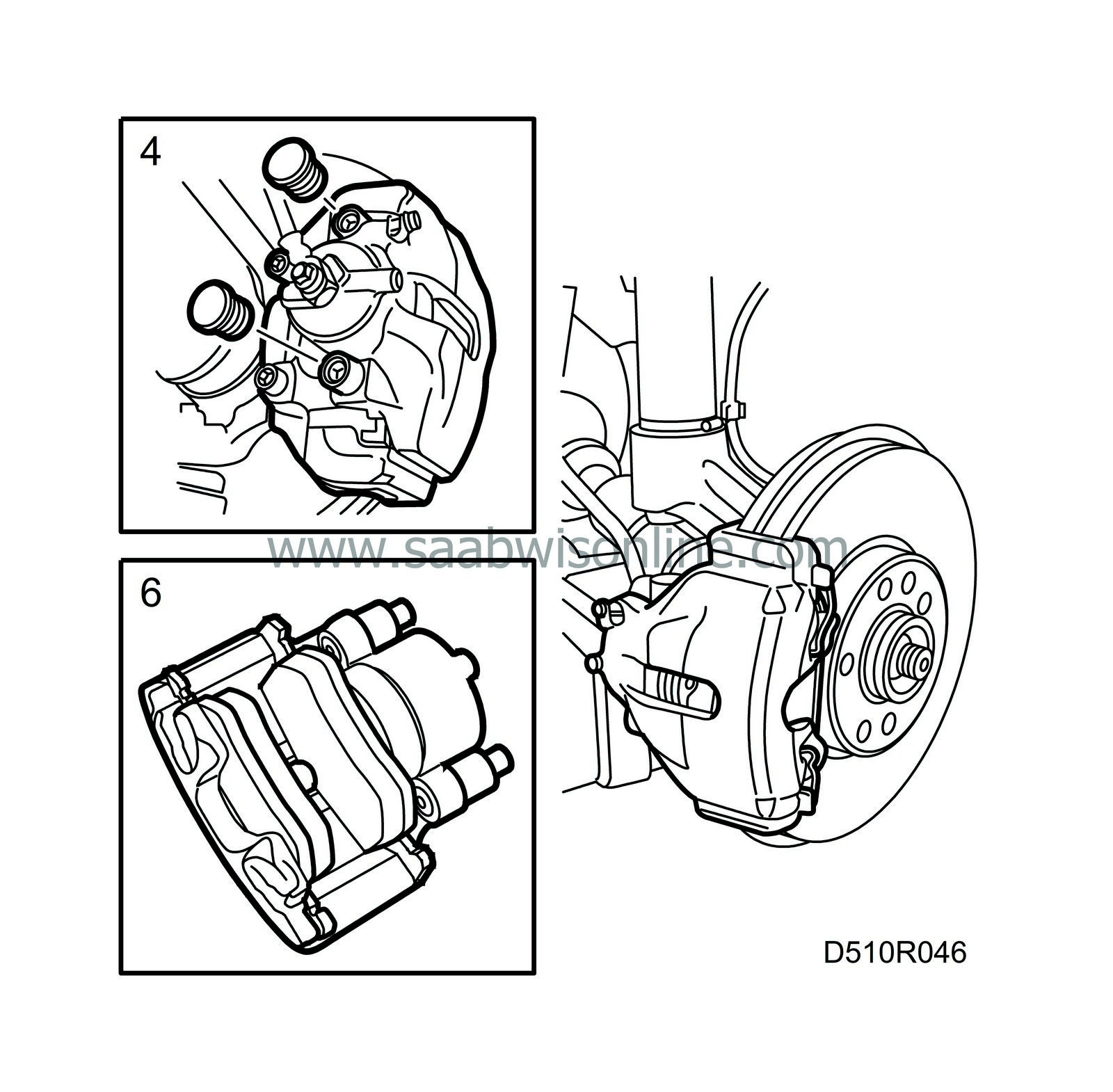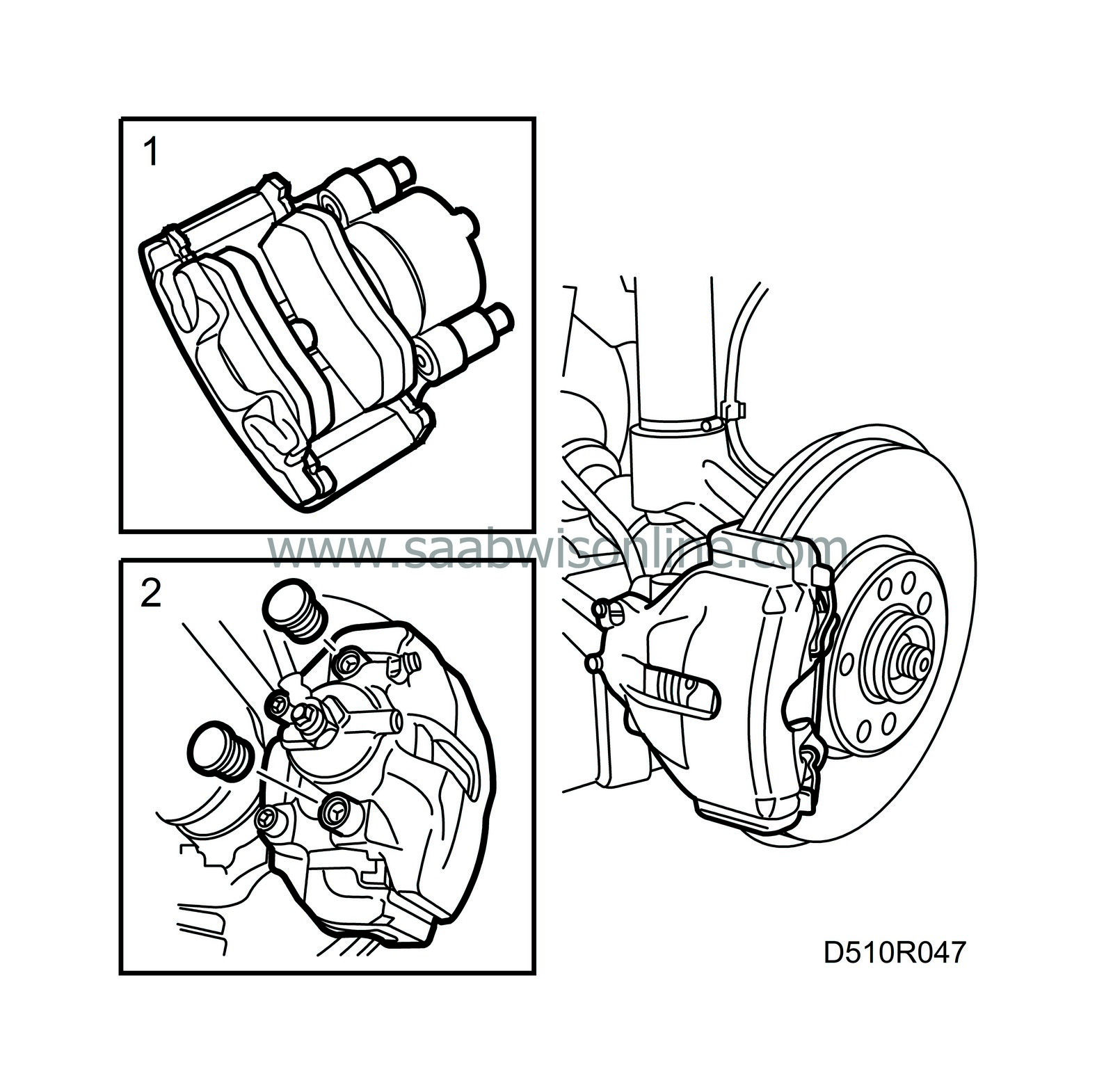Brake pads, front wheel
| Brake pads, front wheel |
| To check |
It is not possible to determine by the length of pedal travel whether the brake pads are worn because the foot brake is self-adjusting. It is therefore essential to remove the wheels and check the thickness of the friction material at the intervals specified in the service programme. On these occasions, the brake pads must be changed if the friction material is less than 5 mm (0.2 in) thick.
The pads are also fitted with an acoustic wear warning device that can be heard when the thickness is less than 3 mm (0.12 in). The pads must be changed when the acoustic warning is heard.
| To remove |

| 1. |
Raise the car and remove the wheel.
|
|
| 2. |
Press the brake piston back using a pair of slip-joint pliers.
|
|
| 3. |
Remove the clip from the brake caliper.
|
|
| 4. |
Remove the dust caps from the guide pins and then remove the guide pins.

|
|
| 5. |
Lift off the brake caliper from the brake disc and suspend it from the MacPherson strut with a cable tie.
|
|
| 6. |
Remove the brake pads. Clean inside the brake caliper with a soft metal brush and check the dust caps.
|
|
| To fit |

| 1. |
Fit the new brake pads in the brake caliper.
|
|
| • |
The outboard brake pads have acoustic wear warning devices that shall face down.
|
| • |
The inboard brake pads must be fitted with the arrows pointing in the direction of rotation of the brake disc when the car is driven in a forward direction.
|
| 2. |
Fit the brake caliper, clean the guide pins and tighten them using a torque wrench.
Tightening torque 28 Nm (21 lbf ft) |
|
| 3. |
Fit the dust caps and the clip.
|
|
| 4. |
Fit the wheel. See
Wheels
.
Tightening torque 110 Nm (81 lbf ft) |
|
| 5. |
Lower the car and depress the brake pedal to press out the brake pistons. Adjust the brake fluid level.
|
|


